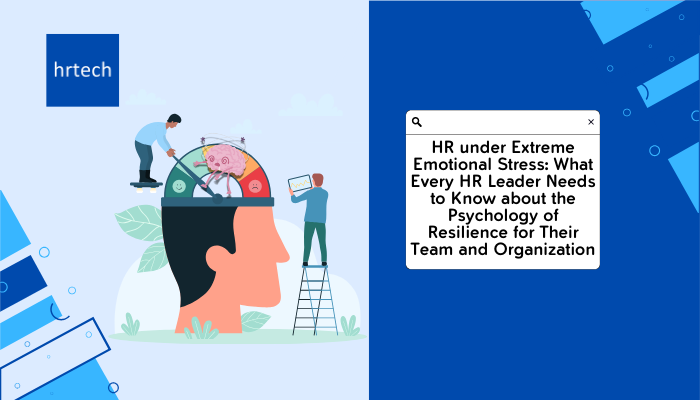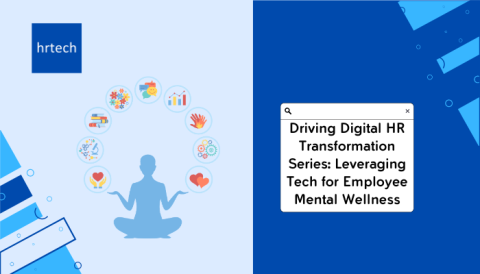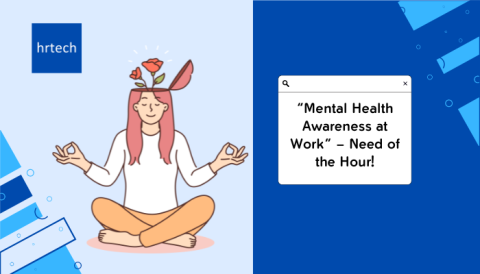by Marion Neubronner
It’s 2024. Does it feel better than 2020?
Or is there something just not right in the workplace, despite all our hopes that the post-pandemic world would be calmer and more positive? However, rather than a relief, many workplaces continue to feel the burden of restructuring, cost-cutting, inflation, war, and climate anxiety hitting their staff and affecting productivity. The discussion on remote or non-remote work is the least of our worries. The real issues are the overstretching of people’s emotions and coping mechanisms, and how HR, as the People Leaders, needs to be super strong, super connected and super optimistic just to manage all the constant changes and crises – in the economy and in the world.

If you are an HR leader reading this, first of all, THANK YOU for everything you do. No bonus or external recognition can truly express the appreciation for the tremendous effort people leaders put into being the social glue that holds all moving parts together, even when things are breaking down.
Second, ARE YOU OK? What can you do now to enhance your emotional strength and improve your psychological understanding of how to manage these confusing and highly charged emotional periods?”
Three, Let’s start with an HR Emotional Audit… so we can dissect and deeply understand your own state of affairs and use these same terms to discuss with your C-suites and team leaders so they can better support you.
HR Work Involves: High Emotional Labor
HR roles often require managing sensitive issues, such as employee disputes, layoffs, and disciplinary actions. Handling these emotionally charged situations regularly can be draining.
Emotional labor involved in these tasks is significant because as HR professionals you must not only process your own feelings about these often difficult situations, but also manage the emotional reactions of others. You are expected to remain professional, composed, and empathetic and be in-between the rising tensions amongst staff and leadership in terms of job cuts and expectations.
Like allied health, teachers, and caregivers, emotional labor is a job hazard that is usually not accounted for in salaries or other forms of rewards or compensation. While many of us in People Management roles may have taken it on as something we enjoy and thrive in, the years of stretching and high stress and confusion bear a high cost to us.
Sociologist Arlie Hochschild refers to emotional labor as the process of managing one’s emotions and expressions based on the emotional requirements of a job. In the context of HR, this means constantly having to navigate a fine line between organizational goals and employee well-being, often in situations where emotions run high. The draining aspect of this labor comes from the need to suppress personal feelings to maintain professionalism, the effort to display the appropriate emotions to support others, and the ongoing requirement to resolve conflicts in a way that balances fairness with organizational policy. Unlike in a one-on-one non-job-related interaction where your opinions and decisions are your own, there can be a high level of friction between what you represent as a company policy and what you personally believe is best for your colleagues.

HR Work Has: Confidentiality Stress
HR professionals handle confidential information, from personal employee issues to organizational changes. The responsibility of maintaining confidentiality while navigating complex interpersonal dynamics can be stressful.
The challenge lies in being a confidante and advisor while also ensuring that the information that could affect the organization’s well-being or legal standing is appropriately managed and not escalated. The balance between being approachable and maintaining professional distance is delicate and can lead to stress, especially in situations where the HR professional is aware of upcoming changes that will affect employees but cannot disclose this information.
This has increased in 2024. You may never have had to carry as much such stress as normal. This is where you have to be extra careful of your own inner circle of work colleagues who can help you defuse some of this strain. A good way to build your team is to strengthen their ability to absorb information without letting it stay in their head and weigh on their hearts.

HR Roles Can Become 24/7 and Require Constant Availability
HR leaders are expected to be available to address urgent issues at all hours. This can lead to difficulty in disconnecting from work and achieving a healthy work-life balance.

Rate yourself: 10 – high, 0 – none – Constant Availability. (Scale)
The cumulative effect of dealing with numerous emotionally intense situations without adequate support or coping mechanisms will lead to HR Burnout.
As a psychologist, what would I suggest if you rate yourself high on High Emotional Labor + Confidentiality Stress + Constant Availability?
Advices:
My first advice is you practice boundary setting if you are a 24/7 employee. Just like you would tell your staff to manage their own work and to prioritize what is urgent and what has to wait; do take your own advice. Constant availability cannot remove the increase in workload; the work will keep coming and we are more keen that your energy and patience are not stretched too thin to take a hard knock which can still come.
My second advice which all counselors and psychologists use is to have a time of unwinding or grounding post a high emotional burden conversation.

Take time in nature or quiet time by meditation or do a walk one bus stop before home… Basically, draw a conscious line in the emotional line between work and your own downtime or personal family time. Counselors and psychologists have supervisors who oversee their cases – and you may need some professional groups in HR not to discuss the actual incidents but to hear how your colleagues deal with their own levels of challenges especially in 2024. Professional venting can bring some relief – no other profession understands your professional issues like HR does. So vent away within discretion.
My third advice is always keep your inner health and emotional health strong. This means you may need a practice of journaling which allows you to download all your ‘unprofessional’ ideas and feelings onto a safe piece of paper.
With this, you have a place to say what you did want to say and hold back. Or a time to express anger at the injustice of some work policies or people even. Write it out and then you can simply make a ritual of tearing up this download of all your day or week’s frustrations.

Once you remove the negative ruminations, you should feel lighter and sleep better.
While at our most highest all-seeing all-powerful HR leader, we would love to be able to provide solace for staff and our leaders; until you can get to a balance in your own lives, we cannot.
Reminder – this stressful time will be longer than expected. If you are at a high of 8/9 for 2 to 3 of the categories please see an EAP provider. You need to be supported too.
Author bio:
Marion is the associate director, Institute of innovation and entrepreneurship, Singapore Management University. She belongs to an exclusive network of international leaders, academics, and experts who not only addresses the greatest challenges of our time in healthcare, public health policy but also identifies promising opportunities and innovations across multi-disciplinary areas. Key projects of merit include training the Singapore Air Force in mental resilience, training senior level leaders and C-suites in coaching skills and business development. She has coached Olympians and millionaires and startup founders to achieve next stage growth in team and profits. She works closely with senior women at the C-suite and helps to ensure diversity and also sustainable change by coaching internally that next stage jump in performance and personal branding.




